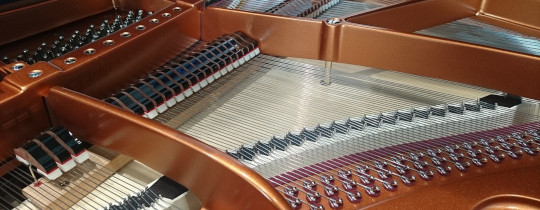Fanny Brice? Alice Roosevelt Longworth? Beatrice Lillie? Anonymous?

Question for Quote Investigator: Giving birth to a child is an intense physical ordeal. A witty woman employed the following simile:
Having a baby is like trying to push a grand piano through a transom.
This remark has been attributed to the prominent Washington socialite Alice Roosevelt Longworth and to the popular comedienne and actress Fanny Brice. Would you please explore this topic?
Reply from Quote Investigator: In 1919 Fanny Brice gave birth to her first child Frances. A pregnant friend contacted Brice to learn about her experience. Emphasis added to excerpts by QI:1
A few days after Frances was born, Irene Castle, who was expecting a baby within a few weeks, called Fanny at the hospital on Long Island. “How does it feel, Fanny?” she asked anxiously.
“Like pushing a piano through a transom,” Fanny replied.
The passage above appeared in the 1953 biography “The Fabulous Fanny: The Story of Fanny Brice” by Norman Katkov. This was the earliest published instance of the full quip known to QI. Thus, Brice received credit several decades after she reportedly made the remark. Longworth also used the saying, but she disclaimed credit by 1981.
Below are additional selected citations in chronological order.
The first published evidence of the simile located by QI appeared in the 1927 book “Denatured Africa” by Daniel W. Streeter. In this case, the simile was applied to stretching earlobes to accommodate large objects and not to childbirth.2
It was like trying to push a grand piano through a transom.
In 1939 “Time” magazine printed the simile within a short review of a movie titled “Only Angels Have Wings”. The simile was applied to difficult aerial maneuvers:3
Never has the aviator’s lot seemed dirtier than at the Barranca field in the tropics, where death is always just beyond the ailerons. And if you don’t break your neck in fog that makes flying like trying to put a piano through a transom, you wind up like Kid Dabb (Thomas Mitchell), grounded and out of a job after 20 years, because middle age catches up with your eyes.
In 1944 “The Philadelphia Inquirer” of Pennsylvania printed a piece about the French novelist Honoré de Balzac who during his lifetime wished to marry a wealthy Polish aristocrat. The simile was applied to the difficult task of wooing this woman:4
He had as much luck as the gent who tried to move a piano through a transom. Three months after marrying a bankroll, he is on his deathbed.
Entertainer Fanny Brice died in 1951, and in 1953 a biography of her described her reputed response when asked about childbirth in 1919:5
“Like pushing a piano through a transom,” Fanny replied.
In 1966 a newspaper in Honolulu, Hawaii printed the comments of a hospital administrator who credited Canadian singer, actress and comedienne Beatrice Lillie with the full quip:6
Frank Keifer, superintendent of the Hilo Hospital used Beatrice Lillie’s description of the birth of a baby to describe the introduction of Medicare in Hawaii.
“It’s like pushing a piano through a transom,” he said.
In 1981 Michael Teague published “Mrs. L: Conversations With Alice Roosevelt Longworth” which was based on discussions taped by the author. In the introductory section, Teague noted that Longworth disclaimed credit for the saying:7
Even her classic remark after the birth of her daughter that “having a baby is like trying to push a grand piano through a transom” she attributed to others.
In 1990 the inveterate quotation collector Robert Byrne included the remark in his fourth compilation while crediting Longworth:8
Giving birth is like trying to push a piano through a transom.
Alice Roosevelt Longworth (1884-1980)
In conclusion, Fanny Brice should receive credit for this expression based on the 1953 biographical citation. The 1919 usage date was supported indirectly by the 1953 citation. The simile was published by 1927, but it was not applied to birth in the initial citations.
Image Notes: Picture of the interior of a grand piano from kpr2 (Klaus P. Rausch) at Pixabay.
Update History: On April 6, 2025 the format of the bibliographical notes was updated.
- 1953, The Fabulous Fanny: The Story of Fanny Brice by Norman Katkov, Chapter 7: Nick Arnstein: “Not Only to Women but to Men”, Quote Page 102, Alfred A. Knopf, New York. (Verified with scans) ↩︎
- 1927 (1926 Copyright), Denatured Africa by Daniel W. Streeter, Quote Page 141, G. P. Putnam’s Sons, New York. (HathiTrust Full View) ↩︎
- 1939 May 22, Time, Cinema: The New Pictures, Time Inc., New York. (Accessed time.com on December 17, 2010) ↩︎
- 1944 May 27, The Philadelphia Inquirer, Who Is It?, Quote Page 10, Column 7, Philadelphia, Pennsylvania. (Newspapers_com) ↩︎
- 1953, The Fabulous Fanny: The Story of Fanny Brice by Norman Katkov, Chapter 7: Nick Arnstein: “Not Only to Women but to Men”, Quote Page 102, Alfred A. Knopf, New York. (Verified with scans) ↩︎
- 1966 May 12, Honolulu Star-Bulletin, Medicare program explained to medical officials by Alf Pratte, Quote Page A4, Column 4, Honolulu, Hawaii. (Newspapers_com) ↩︎
- 1981 August 16, Daily Press, Section: InnerViews, Book Review by John Barkham of Michael Teague’s “Mrs. L: Conversations with Alice Roosevelt Longworth”, Quote Page 5, Column 5, Newport News, Virginia. (Newspapers_com) ↩︎
- 1990, The Fourth and By Far the Most Recent 637 Best Things Anybody Ever Said, Compiled by Robert Byrne, Quotation Number 216, Atheneum: Macmillan Publishing Company, New York. (Verified with scans) ↩︎